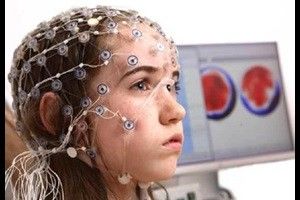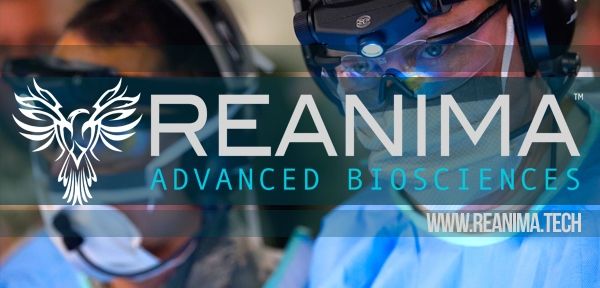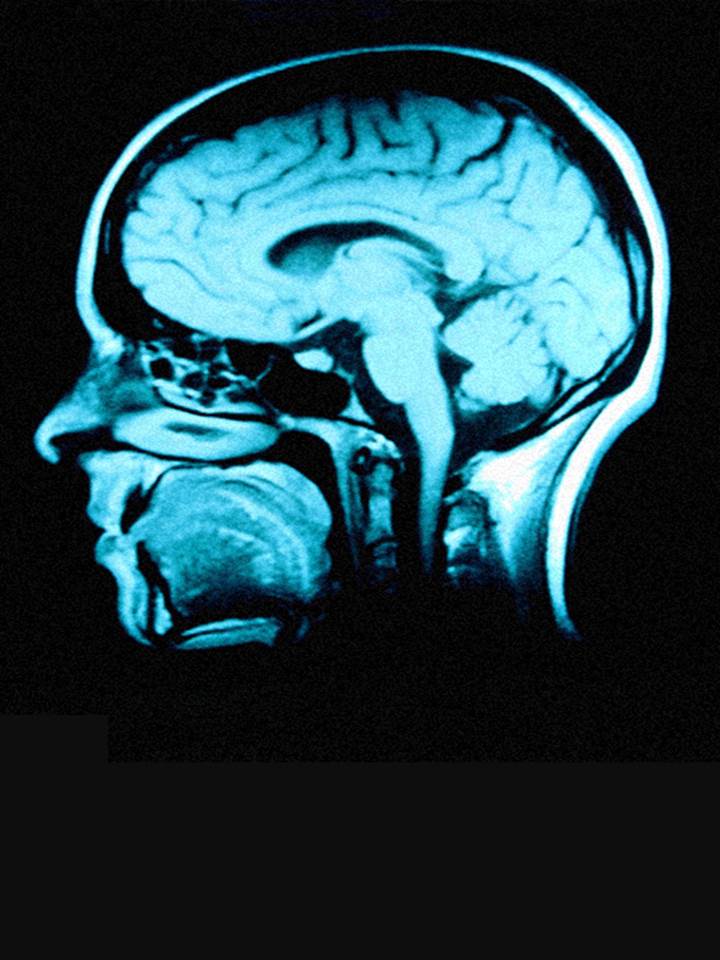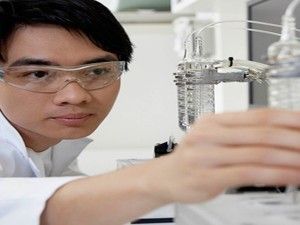Archive for the ‘Neuroscience’ tag: Page 2
Aug 7, 2017
If we can build a brain, what is the future of “I”?
Posted by Johnny Boston in categories: biological, biotech/medical, ethics, futurism, health, transhumanism

The study of consciousness and what makes us individuals is a topic filled with complexities. From a neuroscience perspective, consciousness is derived from a self-model as a unitary structure that shapes our perceptions, decisions and feelings. There is a tendency to jump to the conclusion with this model that mankind is being defined as self-absorbed and only being in it for ourselves in this life. Although that may be partially true, this definition of consciousness doesn’t necessarily address the role of morals and how that is shaped into our being. In the latest addition to The Galactic Public Archives, Dr. Ken Hayworth tackles the philosophical impact that technologies have on our lives.
Tags: Brain, conciousness, connecting, connections, future, hayworth, i, identity, individual, ken hayworth, mankind, me, Neuroscience, persona, personal identity, science, video
Feb 11, 2017
Value Conflicts surrounding the Meaning of Life in the Trans/Post/Human Future
Posted by Steve Fuller in categories: biological, cryonics, cyborgs, economics, environmental, ethics, futurism, governance, health, homo sapiens, law, mobile phones, policy, posthumanism, security, theory, transhumanism
Posthumanists and perhaps especially transhumanists tend to downplay the value conflicts that are likely to emerge in the wake of a rapidly changing technoscientific landscape. What follows are six questions and scenarios that are designed to focus thinking by drawing together several tendencies that are not normally related to each other but which nevertheless provide the basis for future value conflicts.
- Will ecological thinking eventuate in an instrumentalization of life? Generally speaking, biology – especially when a nervous system is involved — is more energy efficient when it comes to storing, accessing and processing information than even the best silicon-based computers. While we still don’t quite know why this is the case, we are nevertheless acquiring greater powers of ‘informing’ biological processes through strategic interventions, ranging from correcting ‘genetic errors’ to growing purpose-made organs, including neurons, from stem-cells. In that case, might we not ‘grow’ some organs to function in largely the same capacity as silicon-based computers – especially if it helps to reduce the overall burden that human activity places on the planet? (E.g. the brains in the vats in the film The Minority Report which engage in the precognition of crime.) In other words, this new ‘instrumentalization of life’ may be the most environmentally friendly way to prolong our own survival. But is this a good enough reason? Would these specially created organic thought-beings require legal protection or even rights? The environmental movement has been, generally speaking, against the multiplication of artificial life forms (e.g. the controversies surrounding genetically modified organisms), but in this scenario these life forms would potentially provide a means to achieve ecologically friendly goals.
- Will concerns for social justice force us to enhance animals? We are becoming more capable of recognizing and decoding animal thoughts and feelings, a fact which has helped to bolster those concerned with animal welfare, not to mention ‘animal rights’. At the same time, we are also developing prosthetic devices (of the sort already worn by Steven Hawking) which can enhance the powers of disabled humans so their thoughts and feelings are can be communicated to a wider audience and hence enable them to participate in society more effectively. Might we not wish to apply similar prosthetics to animals – and perhaps even ourselves — in order to facilitate the transaction of thoughts and feelings between humans and animals? This proposal might aim ultimately to secure some mutually agreeable ‘social contract’, whereby animals are incorporated more explicitly in the human life-world — not as merely wards but as something closer to citizens. (See, e.g., Donaldson and Kymlicka’s Zoopolis.) However, would this set of policy initiatives constitute a violation of the animals’ species integrity and simply be a more insidious form of human domination?
Continue reading “Value Conflicts surrounding the Meaning of Life in the Trans/Post/Human Future” »
Tags: animals, children, Death, energy, longevity, meaning of life, Neuroscience, politics, poverty, values
May 13, 2016
Bringing The Dead Back To Life — Reanima Project / Bioquark Inc. Media Coverage
Posted by Ira S. Pastor in categories: aging, bioengineering, biological, cryonics, disruptive technology, futurism, health, life extension, neuroscience, transhumanism
Fox 29 — Good Day Philadelphia
http://www.fox29.com/140735577-video
NBC TV 10
Continue reading “Bringing The Dead Back To Life — Reanima Project / Bioquark Inc. Media Coverage” »
Tags: aging, Alzheimer's, biotech, biotechnology, Brain, brain death, brain research, cancer, coma, connectome, cryonics, Cryopreservation, Death, future, futurism, Immortal Life, immortalism, immortality, longevity, Medical Technology, Neuroscience, philosophy of mind, rejuvenation, research, resurrection, singularity, technology, transhuman, transhumanism
Apr 20, 2016
Bioquark Inc. and Revita Life Sciences Receive IRB Approval for First-In-Human Brain Death Study
Posted by Ira S. Pastor in categories: aging, bioengineering, biological, biotech/medical, cryonics, disruptive technology, futurism, health, life extension, neuroscience
Bioquark, Inc., (http://www.bioquark.com) a company focused on the development of novel biologics for complex regeneration and disease reversion, and Revita Life Sciences, (http://revitalife.co.in) a biotechnology company focused on translational therapeutic applications of autologous stem cells, have announced that they have received IRB approval for a study focusing on a novel combinatorial approach to clinical intervention in the state of brain death in humans.
This first trial, within the portfolio of Bioquark’s Reanima Project (http://www.reanima.tech) is entitled “Non-randomized, Open-labeled, Interventional, Single Group, Proof of Concept Study With Multi-modality Approach in Cases of Brain Death Due to Traumatic Brain Injury Having Diffuse Axonal Injury” (https://clinicaltrials.gov/ct2/show/NCT02742857?term=bioquark&rank=1), will enroll an initial 20 subjects, and be conducted at Anupam Hospital in Rudrapur, Uttarakhand India.
Tags: aging, anti-aging, biological, biotech, biotechnology, brain death, cryonics, Death, evolution of brain, future, God, humanity, Immortal Life, immortality, Life extension, longevity, Neural Stem Cells, Neurology, neuropharmacology, Neuroregeneration, Neuroscience, posthumanism, Radical Life Extension, reanimation, rejuvenation, Religion, research, resurrection, singularity, technology, transhumanism
Mar 21, 2016
Resurrection and Biotechnology
Posted by Ira S. Pastor in categories: biotech/medical, disruptive technology, Elon Musk, futurism, human trajectories, neuroscience, posthumanism, Ray Kurzweil, Skynet, transhumanism
“He is not here; He has risen,” — Matthew 28:6
As billions of Christians around the world are getting ready to celebrate the Easter festival and holiday, we take pause to appreciate the awe inspiring phenomena of resurrection.
In religious and mythological contexts, in both Western and Eastern societies, well known and less common names appear, such as Attis, Dionysus, Ganesha, Krishna, Lemminkainen, Odin, Osiris, Persephone, Quetzalcoatl, and Tammuz, all of whom were reborn again in the spark of the divine.
Tags: aging, aging research, Bill Gates, biotech, biotechnology, brain death, Death, Elon Musk, evolution, God, Google, human evolution, immortalism, immortality, matrix, Neuroscience, past lives, posthumanism, Ray Kurzweil, reanimation, rejuvenation, Religion, Remote sensing, resurrection, savantism, skynet, Stephen Hawking, transhumanism, vatican, wearables
Mar 9, 2016
Death Reversal — The Reanima Project — Research Whose Time Has Come
Posted by Ira S. Pastor in categories: aging, biotech/medical, business, cryonics, health, life extension, neuroscience, posthumanism, science, scientific freedom
I have spent the last 30 years in various aspects of the biopharmaceutical industry, which for the most part has been a very rewarding experience.
However, during this time period, having been immersed many different components of therapeutic development and commercialization, one thing has always bothered me: a wide array of promising research never makes it off the bench to see the translational light of day, and gets lost in the historical scientific archives.
I always believed that scientific progress happened in a very linear narrative, with each new discovery supporting the next, resulting ultimately in an eventual stairway of scientific enlightenment.
Continue reading “Death Reversal — The Reanima Project — Research Whose Time Has Come” »
Tags: awakening, biology, Brain, brain death, coma, Death, discovery, family, future, health, healthspan, icu, insurance, intensive care, Life extension, longevity, Medical Technology, men, neural, Neural Processes, Neural Stem Cells, Neuroregeneration, Neuroscience, Population, progress, PVS, reanimation, regeneration, rejuvenation, science, singularity, technology, transhumanism, vegetative state, Women
Dec 22, 2015
Unlocking the Brain a Healing Promise for Those Who Suffer
Posted by Dan Faggella in categories: neuroscience, science
Controlling the brain, consciousness and the unconscious through artificial means has long been a staple plot of science fiction. Yet history has a way of proving the fictional to end up as possible, and the future of brain-machine interface appears to hold greater promise than ever before.

Image Credit: Society for Neuroscience (SFN)
According to Neuroscience Researcher, Yale University Fellow, and the Director of Yale’s Clinical Neuroscience Imaging Center, Dr. Hal Blumenfeld, we can now therapeutically (and safely) go inside the brain. As he reflected on the recent advances in neuroscience, Blumenfeld cited the progress that’s been made in the last decade in understanding the relationship between brain activity and conscious thought as one of the biggest breakthroughs. The ability to find the switch in the brain that regulates consciousness, and turn it on and off, is a major step toward the treatment of epilepsy, brain injuries and more, and could have a profound effect on mankind, he said.
“I think the exciting advances are really looking in the network approach to understanding the brain, looking at the brain as a network, and understanding that, for something as wide reaching as consciousness to happen, you really need the whole brain network or most of the brain,” Blumenfeld said. “There’s a switch deep in the middle of the brain that can either be turned on or off. When that gets turned on, the whole rest of the brain network, including the cortex, all start to interact and create consciousness. When that switch gets flipped off, consciousness is turned down and we lose consciousness.”
Continue reading “Unlocking the Brain a Healing Promise for Those Who Suffer” »
Sep 15, 2015
The Imminence of Transhuman Technologies
Posted by Dan Faggella in categories: bioengineering, ethics, existential risks, genetics, health, innovation, neuroscience
Progress always seems to ride a slippery slope. Innovations generally bring a plethora of potential benefits and just as many dangers, the obvious and the hidden. Technologies that tamper with our biological constructs is well underway in the neuro- and biotech industries. Historically, innovations in medicine have usually been beneficial on the aggregate.
But these new breakthroughs go beyond preventing and healing pre-existing causes. Transhuman technologies hold the promise of enhancing who we are as individuals and potentially as an entire species, and the decisions surrounding these technologies are far from simple. Dr. Nayef Al-Rodhan, a philosopher, neuroscientist, and director of the Geneva Center for Security Policy, believes we should be acting now to prepare for the inevitable and the unpredictable ramifications.
Framing Human Motivation
Considering our mixed track record as a species in rolling out groundbreaking innovations, discussing and finding potential solutions to many of the hidden dangers, and obvious ones, seems more than reasonable. One of the more puzzling questions is, where do we begin to have a pragmatic conversation on the ethics of these technologies?
There are plenty of theories about what drive human decisions, not least because human morality is infinitely complex and our minds crave frames through which to make sense of chaos. Dr. Al-Rodhan has his own conception of what drives human motivations. He makes meaning using the lens of “5 P’s” – Power, Pride, Profit, Pleasure, and Permanence – which he posits drive human motivations. “This is my view, the foundation of my outlook…this perceived emotion of self interest drives our moral compass.”
Continue reading “The Imminence of Transhuman Technologies” »
Jan 29, 2015
Dr. Ken Hayworth, Part 3: If we can build a brain, what is the future of I?
Posted by Johnny Boston in categories: augmented reality, biotech/medical, entertainment, existential risks, futurism, neuroscience, particle physics, philosophy, physics, quantum physics, science, singularity

The study of consciousness and what makes us individuals is a topic filled with complexities. From a neuroscience perspective, consciousness is derived from a self-model as a unitary structure that shapes our perceptions, decisions and feelings. There is a tendency to jump to the conclusion with this model that mankind is being defined as self-absorbed and only being in it for ourselves in this life. Although that may be partially true, this definition of consciousness doesn’t necessarily address the role of morals and how that is shaped into our being. In the latest addition to The Galactic Public Archives, Dr. Ken Hayworth tackles the philosophical impact that technologies have on our lives.
Our previous two films feature Dr. Hayworth extrapolating about what radical new technologies in neuroscience could eventually produce. In a hypothetical world where mind upload is possible and we could create a perfect replica of ourselves, how would one personally identify? If this copy has the same memories and biological components, our method of understanding consciousness would inevitably shift. But when it comes down it, if we were put in a situation where it would be either you or the replica – it’s natural evolutionary instinct to want to save ourselves even if the other is an exact copy. This notion challenges the idea that our essence is defined by our life experiences because many different people can have identical experiences yet react differently.
Hayworth explains, that although there is an instinct for self-survival, humanity for the most part, has a basic understanding not to cause harm upon others. This is because morals are not being developed in the “hard drive” of your life experiences; instead our morals are tied to the very idea of someone just being a conscious and connected member of this world. Hayworth rationalizes that once we accept our flawed intuition of self, humanity will come to a spiritual understanding that the respect we give to others for simply possessing a reflection of the same kind of consciousness will be the key to us identifying our ultimate interconnectedness.
Continue reading “Dr. Ken Hayworth, Part 3: If we can build a brain, what is the future of I?” »














